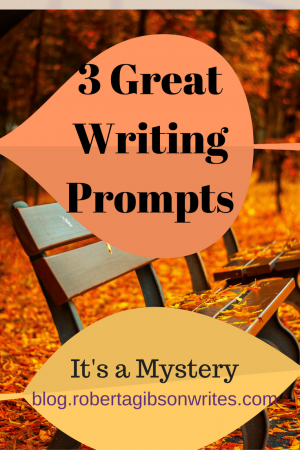I’ve always wanted to learn Tai Chi.
I’ve always wanted to learn Tai Chi.
What was I going to write about? Oh yes, narrators with — ouch — head injuries that mess with their memories.
And, before I forget, this post has spoilers.
Amnesia is incredibly rare in real life, but within the last year I’ve read three novels with this kind of unreliable narrator.
Upon a Dark Night* by Peter Lovesey
(*Amazon Affiliate link)
Summary: A young woman with bad injuries is dumped the the hospital parking lot. When she awakes, she has no memory of who she is or what happened to her.
Although Detective Inspector Peter Diamond is the protagonist of the series, many of the chapters are from the young woman’s rather hazy point of view.
“Her loss of identity was total… She didn’t even know what sex she belonged to.
It called for self-discovery of the most basic sort. Tentatively she explored her body with her hand, traced the swell of her breast and then moved down. “
Crash & Burn by Lisa Gardner
A mysterious woman survives a car crash, but has a head injury that leaves her memory severely impaired. Is it coincidence that she has sustained two previous head injuries in the recent past? She doesn’t remember.
My name is Nicky Frank. Except, most likely, it isn’t.
The Witch Elm by Tana French
After Toby Hennessy is assaulted badly, he loses parts of his memory. He’s not at all sure what happened and, more importantly, what criminal acts he might have carried out in the past.
Unreliable narrators are incredibly popular right now (see Gone Girl, the Girl on the Train, and We Were Liars, for example). As a writer, I can understand the impulse to include a character who is a living, breathing victim, but who can’t reveal too much about what happened. It helps generate sympathy for them, increasing the chances the reader will stick around to figure out the crime. When the author drops a dead body in the first few pages, it is up to the detective(s) to generate emotional investment in solving the crime, which can be a more difficult task.
Writing an unreliable narrator, however, can be tricky. The best ones slowly regain their memories, creating a character arc that amounts to a writing trick for revealing back story in a believable way.
The worst ones aren’t consistent, remembering pieces when convenient, then forgetting again in the next chapter. Even worse, when it isn’t believable in what they supposedly forget. Take for example the young woman in Upon A Dark Night quoted above. Gender identity isn’t stored in the same place as the type of memories she appears to have lost. Plus, imagine yourself lying in a bed with your eyes shut. Can you figure out your own gender without feeling yourself up? I can. That error dumped me right out of the story.
Even the set up must be believable. In Crash & Burn, a woman who has had two previous bad concussions receives yet another brain injury. Why would the author do that? Perhaps to make sure the victim doesn’t regain her memory? It seemed like overkill, however, and frankly made an unlikely story even less plausible.
Authors often use unreliable narrators to generate convoluted plot twists, leading the reader down one path before careening off in a new direction. To keep the reader invested, there must be clues that things aren’t exactly as suggested on the surface. Unfortunately, if the clues are too subtle it can make for exhausting reading because you have to evaluate every word, every sentence for hidden meanings.
That was definitely the case in The Witch Elm for me. Not only was the main character an unreliable narrator, he turned out to have a negative character arc, starting out as a seemingly mild-mannered, pleasant young man who might have done something shady. By the end, I was trying to figure out why we were supposed to be interested in this man’s story at all. No one else in the story cared, either. It was only Tana French’s beautiful writing that kept me reading at all.
On the whole, I would say that mysteries with unreliable narrators who have amnesia or memory loss leave me unsatisfied. Let’s face it, people with their memories intact are unreliable enough. No need to add what is obviously an artificial construct into the mix.
How about you? Do you enjoy novels with unreliable narrators?
In celebration of 2020, let’s dance.
This dance is mesmerizing to me for a number of reasons.
I love how the costumes and movements play with gender. If the male dancers all had long hair (or the females short), it would be difficult to tell them apart. The dancers’ muscles ripple in the same way when they move, etc. Also, at one point the male dancers leap into the female dancers’ arms in a blatant role reversal. It makes me smile as well, however, because based on the occasional close up glimpse of female-specific body parts, I suspect the camera person didn’t get the gender-neutral memo from the choreographer.
As a biologist, I also noticed that many of the movements mimic bird courtship behaviors. Amazing.
What do you see in this dance?

I’ve just returned from the Tucson Festival of Books 2018 and I’m a combination of exhausted and euphoric. What an awesome event!

In case you’ve never heard of it, the Tucson Festival of Books is held on The University of Arizona® campus. It celebrates southwestern U.S. books and authors (for the most part, there are many exceptions) with panel discussions, workshops, and book signings. It is a wonderful place to discover new favorite authors, as well as to glean tidbits about the craft of writing. The festival organization and the venue are fantastic. plus it is free to attend. The only down side is that here are so many things to see and do, it is impossible to cover it all.
A few authors stood out among the over 500 attending.
His newest novel, High White Sun, is coming out next week. It is a sequel to The Far Empty (previous review).
J. Todd Scott is currently working as an Assistant Special Agent in Charge for the DEA, but also manages to find the time to write exceptional novels set in west Texas.
As for his writing process, he mentioned that for his first novel he started out with a love for the raw beauty of his Texas setting, plus the first line of the novel. He didn’t have a plan or outline, but wrote his first draft straight through. In fact, he quoted E. L. Doctorow:
It’s like driving a car at night. You never see further than your headlights, but you can make the whole trip that way.
It was good to see Todd Scott invited to speak on a panel. Most of the panels featured writers who were hawking their 6th or 12th or even 57th book. He’s already being taken seriously after one novel.
She discussed her newest, Keep Her Safe: A Novel.
Why is a British author at a southwestern book festival? Because Keep Her Safe takes place at a luxury resort in Arizona.
The story came from a real life incident where the hotel receptionist gave her the key to a room that had already been given to someone else. She was tired and disoriented when she entered, so didn’t realize the hotel receptionist’s mistake until the room’s occupant confronted her. That is creepy enough, but afterwards she began to imagine what if she had seen something that she wasn’t supposed to see. She incorporated that idea into the book.
Sophie Hannah’s writing schedule is the best I’ve ever heard. For her latest novel, she wakes up around 8:30 a.m. Without getting out of bed, her husband brings her tea, a chocolate croissant, and her laptop, which she uses to write for three hours. Then she gets up and starts her day. My jaw has permanently dropped after hearing that. It is the anti-matter version of my life.
Her debut novel is Blood’s Echo (A Veranda Cruz Mystery).
Isabella Maldonado (Judy Jance called her “Bella”) is another up and coming author. In her workshop, Writing Authentic Police Procedurals, Maldonado used examples from her experiences with the police force to illustrate how to write an authentic crime-based novel. Tidbits included that it is illegal for a police detective to talk about his or her case with someone outside the investigation, and that if a police officer is involved in a fatal shooting, he or she is “sidelined” for at least a month while under investigation. She then suggested ways to circumvent the rules, or at least show you as an author understand them.
She also explained big city police forces often have layers of bureaucracy that are too complex to be portrayed realistically without potential confusion and a huge cast of characters. Again, she suggested ways to condense the bureaucracy while making it seem real.
With her extensive insider knowledge, I think she should write a nonfiction book on this topic.
In addition to all the great information about writing, it was also possible to make some generalizations about the readers who made up the audiences at the Tucson Festival of Books.
First of all, baby boomers love mystery, suspense, and crime. Whenever the panels where made up of mystery authors, the audience in the room skewed noticeably to the baby boomer generation. Based on what I heard from those sitting around me, plus the speakers, it seemed like a lot of the readers were initially influenced by Agatha Christie and Raymond Chandler. For example, Craig Johnson referred to an Agatha Christie book in his Longmire novel about a crime on a train. Sophie Hannah has been commissioned to write new novels featuring Agatha Christie’s Hercule Poirot.
Where were the younger readers and writers? They showed up for science fiction/speculative fiction/fantasy authors, as well as those who specialized in young adult. The early influences of these choices were less concrete, but I heard numerous references to Harry Potter books (one young author “sorted” her characters by which house they would belong to in Hogwarts), Hunger Games, and to a lesser extent, Game of Thrones. It was not completely clear whether reading the books made the genres more popular, or the books were popular because the genres are.
In any case, the Tucson Festival of Books has a lot to offer for writer and reader alike. If you love books, you might want to put it on your calendar for March 2019.
My son’s less-than-serious response to my writing “crisis.”


Have you ever tried writing prompts? They can be helpful in all sorts of ways, from writing your way out of writer’s block to keeping your writing sharp when you are between projects. If you like to have everything planned out when you write, using prompts might help you loosen up and become more spontaneous. Plus, you never know where an idea might take you.

Today I’d like to share the writing prompts I used with a writing group at our local library.
The first writing prompt came from Writing to Change the World: An Inspiring Guide for Transforming the World with Words by Mary Pipher (around page 33, depending on the edition).
Mary Pipher describes a project to write a poem by starting each new phrase with “I am from…” Although designed to be a project to reveal things about yourself, it would also be equally useful to write from one of your character’s point of view, for a character study.
Example:
I am from New England stock, hardworking and stoic,
All about ideas and problem solving
Emotions hidden, feelings invisible.I am from Lois and Kent,
Sheldon and Beulah,
James and Mabel.I am from pancakes and eggs,
Fried chicken and mashed potatoes,
Garden fresh tomatoes and green peas.I am from trees, forests, deer, and lakes,
Winding two lane roads,
Weather and seasons,
Dairy farms and vineyards.I am from New England Stock,
Deep roots, cut free.
For the second writing exercise I read a bit of Elizabeth Berg’s section about plotting from Escaping into the Open: The Art of Writing True.
Elizabeth Berg is a “pantser,” that is she doesn’t plan out her books in detail beforehand. As part of the process, she collects objects, photographs, and sayings to spark her work. She keeps these “found objects” in a special project folder.
Inspired by her system, I collected one word from each participant and the challenge was to incorporate all the words in a story. Our “found words” included: open, ecstatic, confused, cat, amazement. We had 12 minutes to write. Much to my “amazement,” some of the participants were able to incorporate the words into nonfiction stories.
Since it was the first day of fall yesterday, I suggested we write about fall and try to use as many senses as possible.
Some results:
If you use one the prompts and post your work, feel free to tell us about it and leave a link in the comments.
Author Harry Kemelman is best known for his mystery series featuring Rabbi David Small, but he also wrote short stories featuring a college professor named Nicky Welt. The Nine Mile Walk: The Nicky Welt Stories of Harry Kemelman is a collection of these short stories.
In all his stories, Kemelman’s protagonists use logic to solve crimes, but nothing beats the pure logic of “The Nine Mile Walk” (text available online).
Modified slightly, the short story is also available as in a two-part video.
First part:
2nd part:
It is a short, but highly-entertaining mystery.

(Public domain)
Have you read Harry Kemelman’s books? What do you think of them?
Interested in writing or reading mysteries? You might want listen to an interview from Talk of the Nation (NPR) with Tana French, author of In The Woods and The Likeness,
and Louis Bayard, author of Mr. Timothy and The Pale Blue Eye.
I love Tana French’s statement about how crime novels are a barometer of society.
You can find a transcript at the NPR website.
What part of the interview resonated with you?

Photo via Visualhunt.com
Are you a J.A. Jance fan? To accompany our last post about J.A. Jance, here is an in depth interview with Mark David Garrison.
She is such a wonderful storyteller!
Love the story about becoming J.A. instead of Judy, and P.D. James being “her neighbor on the shelf.”
What do you think?
© 2025 It's A Mystery Blog
Theme by Anders Noren — Up ↑